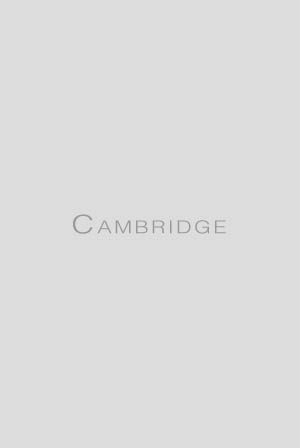Article contents
Harps in the Baroque Era
Published online by Cambridge University Press: 01 January 2020
Extract
The nature of harping before the general use of the pedal harp makes research peculiarly frustrating. Apart from bagpiping—which is to this day so secret a skill that most virtuosi will never reveal the true details of their reed-making and playing—no instrumental technique remained so long a craft, without a written literature. As far as the baroque era is concerned, there is the additional problem that the word harp covered a number of harps with different forms, techniques and functions. This preamble is not, like that of the music-hall juggler, to make the act seem so difficult that the sympathy of the audience is assured at the start, but simply to warn you that the information I have been able to collect on the subject of harps between roughly 1600 and 1750 is drawn from somewhat disparate sources and is rather unevenly spread, both geographically and chronologically.
- Type
- Research Article
- Information
- Copyright
- Copyright © Royal Musical Association, 1963
References
1 Joan Rιmmer, ‘The Morphology of the Irish Harp’, Calpιn Socιety Journal, xvii (1964) pp. 39–49.Google Scholar
2 Francis Bacon, Sylva Sylvarum, in The Works Of Francis Bacon, ed. J. Spedding, R. L. Ellis & D. D. Heath, London, 1857, p. 420.Google Scholar
3 Michael Praetorius, Syntagma, ii, 1618, p. 56.Google Scholar
4 John Evelyn, Diary, (20th January 1654), ed. E. S. de Beer, iii, London, 1955. P. 92.Google Scholar
5 Giustiniani, V., Discorso sopra la Musica, 1628, tr. Carol MacClintock, American Institute of Musicology, p. 71.Google Scholar
6 Pope Paul V, 1605–1621.Google Scholar
7 Marin Mersenne, Harmonie Unιverselle, Paris, 1636, iii, p. 216.Google Scholar
8 Nigel Fortune, ‘Continuo Instruments in Italian Monodies’, Galpin Socιety Journal, vi (1953) pp. 12–13.Google Scholar
9 Joan Rimmer, ‘James Talbot's Manuscript, V1; Harps.’, Galpin Society Journal, xvi, (1963), pp. 63–72.Google Scholar
10 Michael Tιlmouth, ‘Some Early London Concerts and Music Clubs, 1670–1720’, Proceedιngs of the Royal Musical Associatιon, 84, p. 24.CrossRefGoogle Scholar
11 Juan Bermudo, Declaracion de Instrumentos Musιcales, Ossuna, 1555, f cxii.Google Scholar
12 Martens, F. H., ‘The Musical Observations of a Moroccan Ambassador, 1690–91’, Musical Quarterly, xv (1929), pp. 575 & 578.Google Scholar
The author wιshes to thank Mary Rowland and Osιan Ellis for coming ιn person to play some of the illustrations, and Mrs. Nansi Rιchards Jones and the B.B C. for permιssιon to use recordings.Google Scholar
- 1
- Cited by


